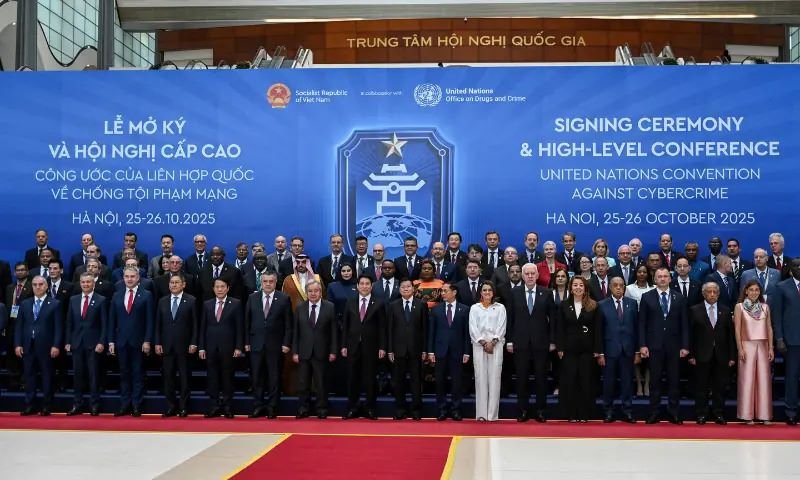Hanoi (TDI): More than 60 countries signed the United Nations’ first-ever treaty on cybercrime on Saturday, marking what UN officials hailed as a major step in tackling the growing wave of digital crimes, even as human rights advocates and tech companies warned it could expand government surveillance powers.
The agreement, known as the UN Convention Against Cybercrime, establishes a global legal framework for cooperation against online offenses ranging from child exploitation and cyber fraud to money laundering and cross-border scams. It will take effect once ratified by participating states.
Speaking at the signing ceremony in Vietnam’s capital, UN Secretary-General António Guterres called the accord an “important milestone” but urged continued vigilance.
“Every day, sophisticated scams destroy families, exploit migrants, and drain billions from our global economy,” Guterres said. “We need a strong, united international response, this is only the beginning.”
The convention originated from a Russian proposal in 2017 and was endorsed by consensus at the UN last year following years of debate. However, critics have warned that its vague language could open the door to misuse, particularly by authoritarian governments.
Read More: Assessing Your Cybersecurity Posture for 2025: A Proactive Approach
Human rights organizations have expressed alarm over what they describe as “weak safeguards” in the final text. In an open letter, more than a dozen rights groups said the convention could be used to justify online repression and cross-border crackdowns on dissent.
Major technology firms have also voiced reservations. The Cybersecurity Tech Accord, which represents more than 160 companies including Meta, Dell, and Infosys, chose not to attend the signing ceremony.
Read More: IDSF 2025: Shaping the Global Cybersecurity Policy
The choice of Vietnam as the signing venue also raised eyebrows. Rights groups noted that Hanoi has a long record of restricting free expression online and jailing critics under broad security laws.



